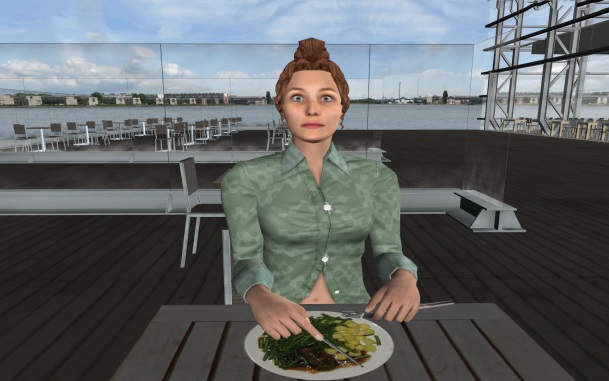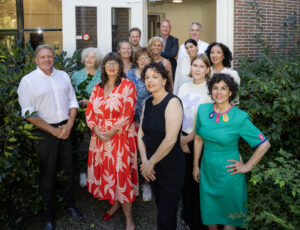About the Article
In virtual reality exposure therapy (VRET), patients are exposed to virtual environments that resemble feared real-life situations. The aim of Morina’s study was to assess the extent to which VRET gains can be observed in real-life situations. He therefore conducted a meta-analysis of clinical trials applying VRET to specific phobias and measuring treatment outcome by means of behavioral laboratory tests or recordings of behavioral activities in real-life.
Results include the finding that patients undergoing VRET do significantly better on behavioral assessments following treatment than before treatment. Overall, the findings demonstrate that VRET can produce significant behavior change in real-life situations and support its application in treating specific phobias.
Read the full article (Science Direct)
Screenshot from virtual reality exposure therapy, aimed at patients with social anxiety.
About Nexmedin Morina
Nexmedin Morina is Assistant Professor of Clinical Psychology at the University of Amsterdam and Golestan Fellow 2015/16. At NIAS, he works on the impact of war on mental health and interpersonal interactions.




